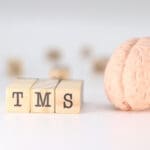Despite best efforts to sustain sometimes complicated regimens of antidepressants, psychotherapy, and positive lifestyle changes, effective treatments for Major Depressive Disorder (MDD) remain a prevalent challenge for many individuals.
Treatment-resistant Depression, also commonly referred to as TRD, affects sizable numbers of depressed individuals and is being rigorously studied by the scientific community in order to better understand how to improve treatment plans for this complex condition. In recent years, the medical community has explored statins as a potential adjunctive treatment for TRD—but contemporary research surrounding their efficacy remains in question.
Statins as Effective Adjunctive Treatments: Fact or Fiction?
As clinicians and researchers continue to search for new adjunctive treatments to support conventional approaches to TRD, the link between cholesterol’s neurological properties and instances of Depression has come into focus as an intriguing avenue for exploration.
What are Statins?
Known for their lipid-modulating properties, statins are a class of drugs primarily administered to lower cholesterol levels in the body.
They are currently being explored for their potential pleiotropic effects including neuroprotective benefits such as being antioxidant, anti-inflammatory, and beneficial for promoting crucial neuroplasticity.
Assessing the Research
Although preliminary assessments of statins as adjunctive treatments for TRD appeared initially favorable, adequately powered recent clinical trials have largely undermined statins’ initial promise.
In early 2023, the Journal of the American Medical Association (JAMA) published a randomized clinical trial of 150 participants struggling with treatment-resistant Depression, administering 20 mg/d of a lipophilic statin known as simvastatin (plus standard care) and measured the beneficial effects against a control group over the course of a 12-week period.
Researchers conducted assessments at baseline and at weeks 2, 4, 8, and 12 of the trial, using the Montgomery-Åsberg Depression Rating Scale (MADRS) to evaluate the severity of the patient’s Depression in both the simvastatin and placebo group. After twelve weeks, researchers found that, unfortunately, the MADRS scores did not differ significantly between either group.
In the same study, rates of remission and response were relatively equivalent between both groups, with additional assessments (such as the HamD-24, the 7-item Generalized Anxiety Disorder scale, and Clinical Global Impression) showing comparable improvement as well— all of which suggest that the simvastatin had little to no effect on subjects, proving statins to be ineffective augmentation for TRD alongside standard care.
Another trial conducted by BMC Medicine, known as Youth Depression Alleviation with Anti-inflammatory Agents (YoDA-A), tested the effects of aspirin and rosuvastatin on young people aged between 15-25 years old, similarly finding no significant differences in MADRS score between the groups receiving placebo and the adjunctive drugs over the course of twelve weeks. This research further demonstrates the lack of benefit from statins in controlled clinical trials.
The Search for Adjunctive Treatment Continues
With clinical evidence demonstrating the inefficacy of statins in treating TRD, the search for more effective treatments has directed attention elsewhere. Beyond statins, there are thankfully other effective adjunctive methods to combat treatment-resistant Depression.
One laudable treatment for depressive disorders is transcranial magnetic stimulation, also known as TMS, which has been backed by an overwhelming body of scientific evidence under both clinical and “real world” conditions since 1985, gaining approval by the FDA in 2008. TMS treatments consist of noninvasive and nonconvulsive procedures that direct magnetic pulses to targeted areas of the brain implicated in mood disorders such as TRD.
Fighting Treatment-Resistant Depression with Mid City TMS
Mid City TMS is proud to offer safe, comprehensive, and effective TMS therapy as a treatment for patients in the New York area who are seeking relief from Depression. Contact us today to learn more about how TMS has changed the landscape of modern medicine and improved the lives of thousands struggling with TRD.



